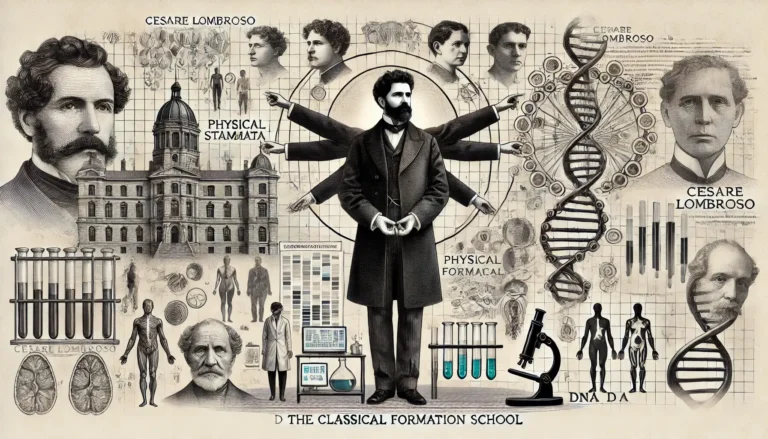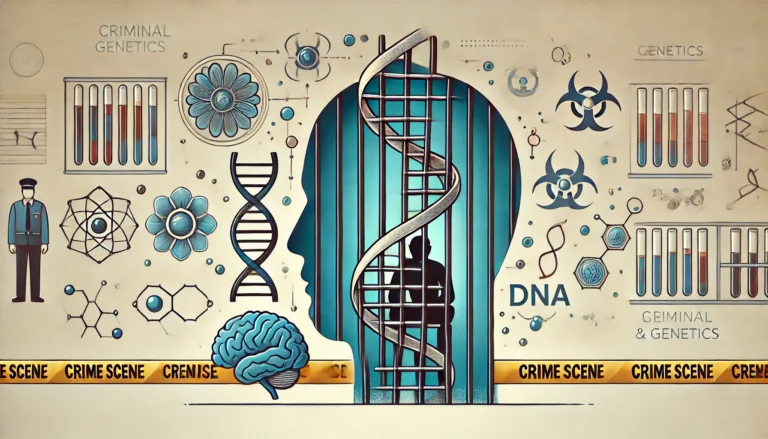Modern Methodologies in Criminology Studies
Criminology, as a dynamic field of study, continuously evolves to adapt to societal changes and technological advancements. Modern methodologies in criminology research integrate innovative tools and interdisciplinary approaches to enhance the understanding of crime and develop effective preventive strategies. This article delves into contemporary methods shaping criminology studies, their applications, and their impact on crime analysis.
1. Quantitative Methods in Criminology
Quantitative approaches dominate modern criminological research, offering precise and replicable findings.
Crime Statistics and Data Analysis
- Trend Analysis: Evaluating patterns in crime rates over time.
- Crime Mapping: Using Geographic Information Systems (GIS) to identify crime hotspots.
Survey Research
- Conducting large-scale surveys to understand public perceptions of crime.
- Gathering offender and victim data for statistical correlations.
Predictive Analytics
- Leveraging algorithms to forecast potential criminal activities.
- Supporting law enforcement agencies in proactive policing.
2. Qualitative Research Techniques
Qualitative methodologies focus on exploring the subjective aspects of crime and criminal behavior.
Ethnographic Studies
- Immersing in communities to understand cultural and social dynamics influencing crime.
- Gaining insights into gang behavior or underground economies.
Case Studies
- In-depth examination of individual offenders or criminal incidents.
- Offering detailed narratives that complement statistical data.
Interviews and Focus Groups
- Engaging with offenders, victims, and law enforcement personnel.
- Gathering firsthand accounts to explore motivations and impacts.
3. Technological Advancements in Criminology
Technology plays a transformative role in modern criminological research.
Big Data and Machine Learning
- Analyzing vast datasets for patterns in criminal behavior.
- Enhancing decision-making through predictive policing and crime forecasting.
Digital Forensics
- Investigating cybercrimes using specialized tools.
- Recovering and analyzing electronic evidence for legal proceedings.
Artificial Intelligence (AI)
- Automating complex data analyses.
- Identifying potential threats through social media and online surveillance.
4. Psychological and Behavioral Analysis
Modern criminology integrates psychological methodologies for deeper insights.
Behavioral Profiling
- Studying the psychological traits of offenders to predict future crimes.
- Assisting in criminal investigations through offender profiling.
Cognitive Studies
- Exploring decision-making processes and risk assessments in offenders.
- Investigating the impact of mental health issues on criminal behavior.
Experimental Criminology
- Conducting controlled experiments to test theories about crime causation.
- Assessing the effectiveness of intervention programs.

5. Interdisciplinary Approaches
Criminology increasingly collaborates with other disciplines to enhance research quality.
Sociological Integration
- Studying the impact of social structures and inequalities on crime.
- Exploring cultural differences in legal systems and justice perceptions.
Biological Perspectives
- Examining genetic predispositions to criminal behavior.
- Investigating neurobiological factors influencing aggression.
Legal Studies
- Assessing the relationship between criminology and criminal law.
- Evaluating the effectiveness of legal reforms in reducing crime.
6. The Role of Ethics in Modern Criminological Research
Ethical considerations are integral to contemporary methodologies.
Confidentiality and Privacy
- Ensuring the anonymity of participants in sensitive studies.
- Protecting victim identities in qualitative research.
Informed Consent
- Obtaining permission from participants before conducting research.
- Ensuring participants understand the purpose and implications of studies.
Bias Mitigation
- Avoiding cultural, racial, or gender biases in research methods and analyses.
7. Global Applications of Modern Methodologies
Modern criminology transcends national boundaries, addressing global challenges.
Transnational Crime Studies
- Investigating issues like human trafficking, terrorism, and cybercrime.
- Collaborating with international organizations to standardize research methods.
Comparative Criminology
- Analyzing crime trends across different cultures and countries.
- Adapting successful interventions to local contexts.
Conclusion
Modern methodologies in criminology studies reflect a shift towards precision, innovation, and interdisciplinary collaboration. These approaches not only enhance the understanding of crime but also empower law enforcement, policymakers, and society to address criminal challenges effectively. As technology advances and societal dynamics evolve, criminology will continue to adopt and refine methods, ensuring its relevance and impact in combating crime.







